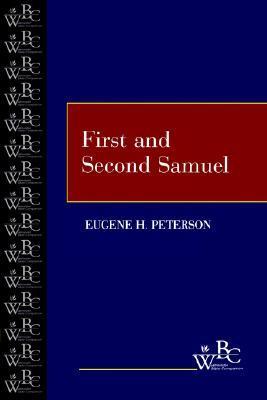What do you think?
Rate this book


The power of story as God's word to the community of faith is never more clear than in the books of Samuel. Emotion, drama, complexity of character, and mystery fill the pages of these two biblical books. Eugene Peterson's commentary emphasizes the resonance and interplay between these stories of kings and prophets and the social and cultural issues that concern us today.
Books in the Westminster Bible Companion series assist laity in their study of the Bible as a guide to Christian faith and practice. Each volume explains the biblical book in its original historical context and explores its significance for faithful living today. These books are ideal for individual study and for Bible study classes and groups.
288 pages, Paperback
First published September 1, 1999